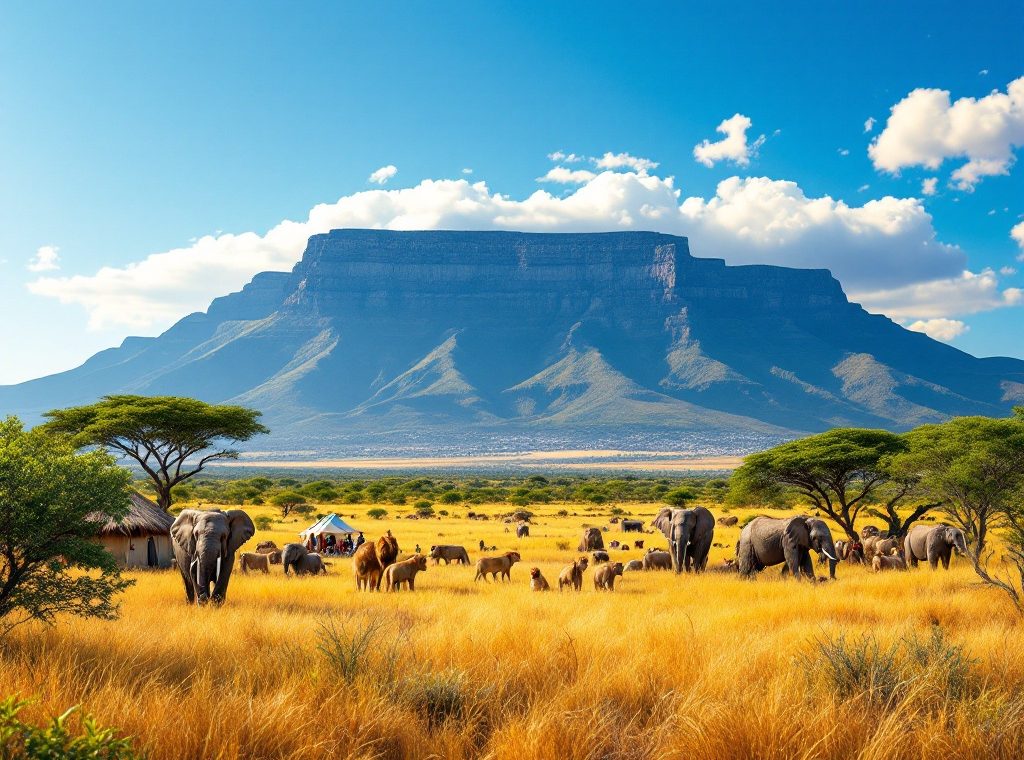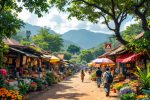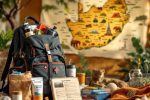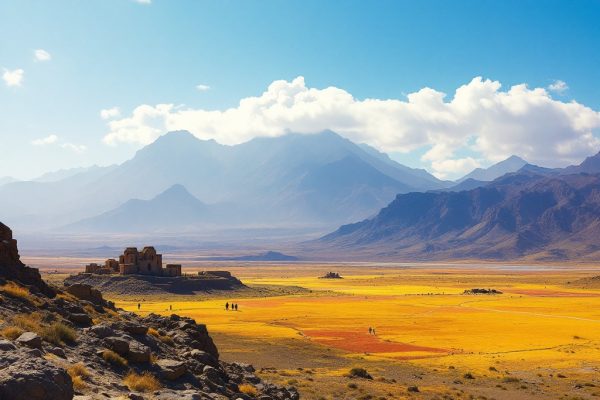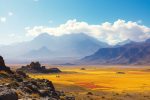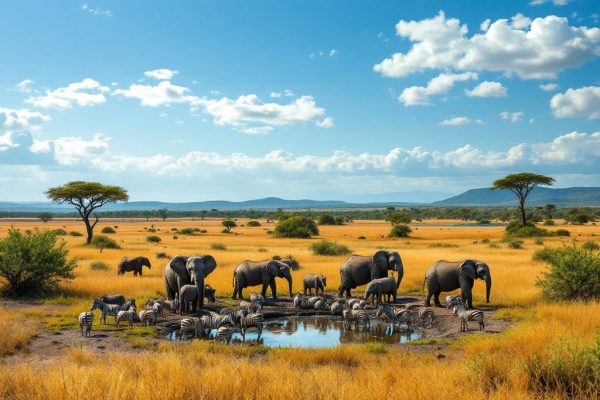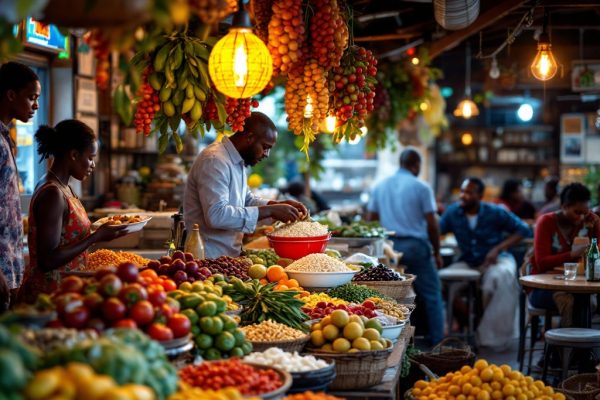Travel Tips for South Africa for First-Time Visitors
Dreaming of an unforgettable adventure? Discover the magic of South Africa, a land of breathtaking landscapes, thrilling wildlife, and vibrant culture. From exploring iconic Table Mountain and Kruger National Park to immersing yourself in the rich history of Robben Island, your first international trip promises unforgettable experiences. Plan your dream trip now with our essential travel tips, covering safety, transportation, accommodations, and cultural etiquette, ensuring a smooth and enriching journey. Start planning your South African adventure today!
Important information
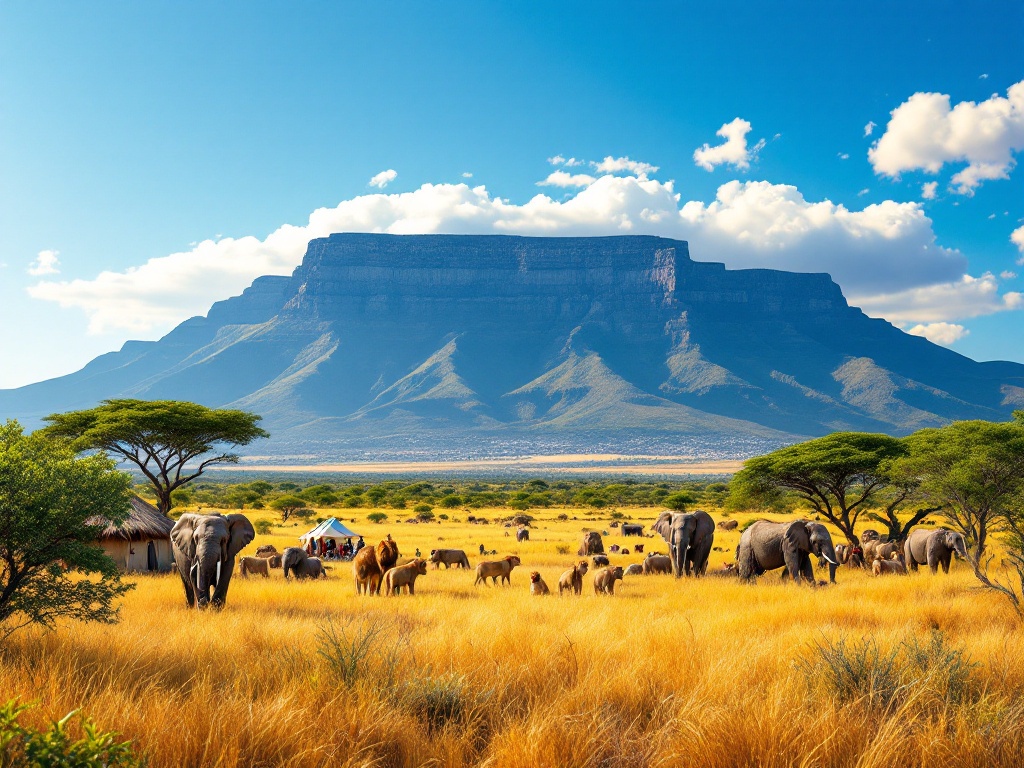
- Safety is key: Be aware of your surroundings, especially at night. Avoid risky areas and keep copies of your passport and travel insurance.
- Plan and book: Arrange accommodations, transportation, and safaris in advance, especially during peak season.
- Health prep: Consult your doctor about needed vaccinations and malaria prevention. Pack a travel health kit with insect repellent and any personal medications.
- Respect local culture: Learn basic greetings in Zulu or Afrikaans. Understand tipping customs (10-15% in restaurants, R100-R200 per day for guides). Research local traditions and etiquette.
- Transport options: Renting a car offers flexibility, but familiarize yourself with local road rules. Consider reputable taxis, ride-sharing, or public transport within cities.
Essential Travel Tips for First-Time Visitors to South Africa
Prioritize your safety while experiencing the wonders of South Africa. Always be aware of your surroundings, especially at night, and avoid risky areas. Secure copies of your passport and travel insurance details. Plan ahead by booking accommodations and transportation in advance. Familiarize yourself with local customs, such as greetings and dining etiquette.Pack appropriate clothing based on the weather and your planned activities. Comfortable walking shoes are a must for exploring. Learning basic local phrases can enrich your interactions with residents. Comprehensive travel insurance is crucial, covering potential health issues and emergencies.Avoid displaying valuables and exercise caution when using your phone in public. Choose reputable transportation services and secure your belongings with a money belt or anti-theft bag. Be mindful of potential scams. By taking these precautions, you can have a fantastic and safe trip.
Understanding South Africa’s Unique Travel Landscape
South Africa offers diverse experiences, from vibrant cityscapes to stunning natural beauty. When exploring urban centers, exercise caution after dark and avoid walking alone at night. Utilize reliable public transportation, metered taxis, or rideshare services for navigating within cities. For venturing into the countryside, a rental car offers the greatest freedom. Always ensure you have a map or GPS device, particularly in remote areas, to facilitate safe and efficient navigation.
Why South Africa is Ideal for First-Time Visitors
Embark on your first international adventure in South Africa, a land of diverse experiences. From thrilling wildlife encounters to vibrant cityscapes, stunning landscapes to rich cultural heritage, there’s something for every traveler. Explore iconic landmarks like Table Mountain and Kruger National Park. Delve into South Africa’s captivating history at the Apartheid Museum. Journey along the scenic Garden Route. For an immersive cultural experience, visit Soweto Township.
Best Time to Visit South Africa
The ideal time to visit South Africa depends on your interests.
- Dry winter months (May to September): offer prime wildlife viewing.
- Warm summer season (November to March): perfect for beach activities, though rain is possible in some areas.
Things to Do
- Explore iconic landmarks like Table Mountain and Kruger National Park.
- Journey along the scenic Garden Route.
- Visit Soweto Township for an immersive cultural experience.
- Delve into South Africa’s captivating history at the Apartheid Museum.
Planning Your Adventure: Booking and Accommodations
Planning a safari? Booking your lodging and safaris in advance is essential, especially during peak season. Demand is high, so securing your spot early avoids disappointment. Whether you prefer luxurious lodges or budget-friendly hostels, pre-booking ensures you have the accommodation that best suits your needs. Consider factors like proximity to attractions and desired amenities when making your choice. Careful pre-planning will greatly enhance your safari adventure.
Booking Tips for Safaris and Game Parks
Plan your unforgettable safari adventure by booking your safaris and game drives in advance, especially during peak season, to secure your spot. Choose from a variety of options, ranging from famous national parks like Kruger to exclusive private game reserves, each offering a unique experience.
Selecting Your Destination
Consider these factors when choosing your ideal safari destination:
- the wildlife you hope to see,
- your budget, and
- your preferred accommodation style, from luxury lodges to rustic campsites.
Guided Tours
Enhance your safari experience with a guided tour. Expert guides offer valuable insights into animal behavior and the ecosystem, significantly increasing your chances of spotting rare wildlife.
Choosing the Right Accommodations: From Luxury Lodging to Budget Options
Planning your first South African adventure? Finding the right accommodation is crucial. South Africa offers a wide variety of options, from luxurious hotels to budget-friendly hostels.
Seeking Charm?
Consider a boutique guesthouse.
Traveling on a Shoestring?
Backpacker lodges and self-catering options are readily available.
Want a Homey Feel?
Explore vacation rentals.
Looking for an Unforgettable Experience?
Immerse yourself in nature at a safari lodge or tented camp.
When choosing your accommodation, consider these factors:
- Proximity to your must-see attractions and activities.
- Essential amenities such as a pool or Wi-Fi.
- Guest reviews for insider perspectives.
For wildlife enthusiasts, safari lodges and tented camps offer an unparalleled experience, placing you in the heart of the action. Booking near attractions also saves valuable travel time. With South Africa’s diverse accommodation options, you’re sure to find the perfect fit for your travel style and budget.
Packing Essentials and Health Precautions
Packing for your South African adventure requires preparation for diverse weather conditions. From scorching hot days to cool evenings, packing layers is essential. Lightweight clothing is ideal for warmer temperatures, while a light jacket will provide comfort when the sun sets. Comfortable walking shoes are essential for exploring the varied landscapes. Don’t forget crucial sun protection: a hat, sunglasses, and sunscreen.
Before You Go
Consult your doctor about necessary vaccinations and malaria prevention. The malaria risk varies across the country, with some regions requiring medication.
Health Precautions
A well-stocked travel health kit is a wise precaution. Include insect repellent, antiseptic wipes, and any personal medications.
What to Pack for Different Weather Conditions
Packing for your South African adventure requires preparation for diverse weather conditions. Layering your clothing is essential, allowing you to adapt to warm days and cooler evenings. Be sure to pack the following items:
- Rain gear,
- Swimwear,
- Comfortable walking shoes,
- Sunscreen,
- Sunglasses,
- A hat,
- Insect repellent,
- A small first-aid kit,
- Any personal medications.
Health and Wellness: Vaccinations and Malaria Pills
Before traveling to South Africa, consult your doctor about necessary vaccinations and malaria medication. Be aware of altitude sickness, particularly in mountainous areas like the Drakensberg region, and watch for its symptoms.
Getting Around: Transportation and Safety
Driving in South Africa offers an excellent way to explore the country, especially considering the limited public transport options. However, navigating city roads requires careful attention and adherence to local traffic laws. Before your trip, familiarize yourself with South African road rules and choose a reliable car rental company. For travel within city limits, metered taxis and ride-hailing services present convenient alternatives, while buses and trains primarily serve urban areas.
Should You Rent a Car in South Africa?
Planning a South African adventure? A rental car offers unparalleled freedom to explore the country’s breathtaking landscapes and uncover hidden gems, surpassing the constraints of public transport. While driving on the left might seem unusual initially, and some areas require a 4×4 vehicle, meticulous route planning and choosing the right car will guarantee a seamless and memorable journey.
Driving Safety Tips in Urban Areas
Prioritize safety by staying alert and aware of your surroundings.
Avoid distractions like cell phones and always obey traffic laws.
Be mindful of pedestrians and cyclists, especially in busy areas.
When stopped, for instance at a traffic light, keep your car doors locked and windows up.
Park in well-lit and secure locations.
While GPS can be useful, don’t depend on it entirely; maintain awareness of your environment.
Understanding Public Transport and Taxis
Getting around South Africa presents several options, each with its own advantages and disadvantages. Public transport, while available, can be unreliable. Taxis offer a more dependable alternative, but choosing reputable services is crucial for your safety. Ride-sharing apps provide both convenience and security, proving particularly useful in major cities like Cape Town and Johannesburg. Minibus taxis are widespread, though often overcrowded. Buses also operate within the public transport network. For exploring coastal areas or the countryside, a rental car offers the greatest flexibility, allowing you to travel at your own pace and discover hidden gems.
Safety Precautions and Emergency Preparedness
For your safety, avoid demonstrations, as large gatherings can be unpredictable. Be particularly cautious in central business districts, especially after dark in major cities like Johannesburg and Cape Town. It’s best to avoid these areas at night.
Carrying South African Rand is recommended for smaller purchases and transportation. While credit cards are widely accepted, cash is often more practical.
Make copies of essential documents, keeping them separate from the originals. This protects you in case of loss or theft.
Stay informed about current events and safety issues by checking local news and government alerts. Resources like the South African Government News Agency website provide valuable information.
Staying Safe: Avoiding Demonstrations and Central Business Districts After Dark
Exercise increased caution in city centers after nightfall, particularly in Johannesburg and Cape Town. Steer clear of demonstrations and large gatherings, as these can present safety risks. Maintain situational awareness at all times. Be vigilant in city centers after dark, especially in Johannesburg and Cape Town. Avoid demonstrations and large gatherings to minimize safety risks. Stay aware of your surroundings at all times.
Carrying Cash and Important Documents
Keep some cash on hand, as not all vendors accept cards.
Photocopy important documents like your passport and store these copies separately from the originals in a secure location. This precaution will prove invaluable if your originals are lost or stolen.
Monitoring News and Alerts for Safety Updates
Stay informed to prioritize your safety. Check local news and government alerts for crucial updates, empowering you to make informed travel decisions. Being aware of potential risks allows you to adapt your plans, such as altering your route or rescheduling outdoor activities. Staying informed also helps you avoid dangerous areas. A quick check for updates is a simple way to ensure a safer trip.
Cultural Insights and Local Etiquette
Showing respect for local cultures is essential when you visit South Africa. A vital part of this is understanding tipping etiquette. In restaurants, a 10-15% tip is standard practice. For tour guides, R100-R200 per day is typical, while porters usually receive R10-R20 per bag. Learning basic greetings such as “Sawubona” (Zulu for hello) and “Dankie” (Afrikaans for thank you) shows respect and improves interactions.
Respectful Communication
South Africa has 11 official languages, including English, Afrikaans, Zulu, Xhosa, and Sotho. Using respectful language and avoiding sensitive topics like apartheid and racial inequality is crucial. Expressing genuine interest in the country’s diverse cultures is always appreciated.
Key Takeaways
- Tip 10-15% in restaurants.
- Give tour guides R100-R200 per day.
- Tip porters R10-R20 per bag.
Politeness makes a significant difference in your experience.
Respecting Local Culture and Customs
Exploring South Africa’s diverse cultures and customs is enriching, but pre-trip research on local traditions is invaluable for a smoother experience. Respecting customs, such as greetings, attire, and social interactions, enhances your journey and fosters positive relationships with locals, offering unique insights. Demonstrating cultural sensitivity, like asking permission before taking photos, builds goodwill. Learning basic isiZulu or Afrikaans greetings is a small yet impactful gesture of appreciation. Even a little research into local etiquette significantly improves your travel experience. Here’s why pre-trip research is essential and how it contributes to a more meaningful and respectful travel experience:
Enhanced Cultural Understanding
researching local customs beforehand allows you to understand the nuances of South African cultures. this prepares you to engage respectfully with locals, fostering meaningful connections and enriching your travel experience.
Smoother Interactions
familiarity with local traditions helps navigate social situations with ease. knowing the appropriate greetings, attire, and dining etiquette can prevent misunderstandings and ensure smoother, more enjoyable interactions.
Show of Respect
taking the time to learn about local customs demonstrates respect for the people and their culture. this gesture of goodwill can open doors to unique experiences and create lasting positive impressions.
Greater Appreciation
understanding the cultural context behind traditions allows you to appreciate the richness and diversity of South Africa more deeply. this knowledge enhances your overall travel experience.
Understanding Tipping Guidelines in South Africa
Tipping practices in South Africa are as follows:
Restaurants: a 10-15% tip is customary for servers.
Hotels: porters typically receive ZAR 10-20 per bag.
Tour Guides/Drivers: ZAR 50-100 per person, per day is standard, but this can vary based on tour length and complexity.
Taxis: drivers usually receive around 10% of the fare.
For other services like spa treatments and haircuts, a 10% tip is also appropriate.
Local Languages: Communication Tips
South Africa recognizes 11 official languages. These include Afrikaans, English, and various Bantu languages such as isiNdebele, isiXhosa, and isiZulu. Sepedi and Sesotho are also among the official languages.
Wildlife Adventures: Safari and Game Drives
Planning your South African safari adventure? Start by exploring the diverse wildlife and choosing the perfect game reserve. Kruger National Park, a prime example, offers guided tours and self-drive adventures, allowing you to witness the majestic “Big Five”: lions, leopards, elephants, rhinos, and Cape buffalo. For an elephant-focused experience, Addo Elephant National Park is renowned for its large herds. If rhinos are your passion, Hluhluwe–iMfolozi Park is home to both black and white rhino populations. Other exceptional reserves like Madikwe, Sabi Sand, and Shamwari each provide unique landscapes and wildlife viewing opportunities.
Witness the “Big Five”
Observe these iconic animals through various methods:
- guided tours,
- self-drive safaris.
Choosing Your Reserve
Kruger National Park: South Africa’s largest game reserve, offering a vast expanse to explore. Addo Elephant National Park: Specifically known for its abundant elephant population. Hluhluwe–iMfolozi Park: An excellent choice for rhino sightings.
Planning a Self-Drive Safari?
A suitable vehicle, preferably a 4×4, is essential. For safety, always stick to designated roads and maintain a respectful distance from animals.
Maximize Your Wildlife Viewing
Embark on game drives during the cooler hours of early morning and late afternoon.
Preparing for a Safari Adventure: Kruger National Park and Beyond
Planning your Kruger National Park adventure? Follow these steps for an unforgettable trip:
Book accommodations and safaris early, especially during peak season. This will guarantee your spot and preferred choices.
Research and select a reputable tour operator for a high-quality safari experience. A knowledgeable guide can greatly enhance your trip.
Familiarize yourself with the park’s terrain and wildlife. This knowledge is crucial for a safe and enriching journey.
Pack appropriately: neutral-colored clothing for blending in, comfortable walking shoes for exploring, and a wide-brimmed hat for sun protection.
Enhance your wildlife viewing with binoculars for close-up observations, a camera to capture memories, and a field guide for animal identification.
Don’t forget essential items. Pack insect repellent, sunscreen, and any necessary medications.
With proper planning, your Kruger adventure will be truly memorable.
What to Know About the Big 5 and Game Reserves
South Africa’s game reserves are famous for their “Big Five” inhabitants: lions, leopards, rhinos, elephants, and Cape buffaloes. Safari enthusiasts eagerly search for these magnificent animals, drawn to the reserves’ diverse wildlife. The Big Five are essential to this ecosystem, and Kruger National Park offers excellent viewing opportunities. For a more personalized experience, consider visiting private reserves specializing in Big Five sightings, providing unique and intimate encounters with these incredible creatures.
Self-Driving Safari: Tips and Precautions
A self-drive safari offers incredible freedom, but safety should always be your top priority. Adhering to park regulations is essential. This includes maintaining a safe distance from wildlife and refraining from feeding them. This protects both you and the animals. Remain inside your vehicle unless you’re in a designated area. Stay alert to your surroundings, watching for hidden dangers like blind corners and dense vegetation. Drive slowly and cautiously, especially on gravel roads.
Before You Go
- Check road conditions and the weather forecast.
- Inform someone of your planned route and estimated return time.
- Carry a fully charged phone, a GPS device, and physical maps, as cellular service can be unreliable.
- Pack ample water, food, and emergency supplies.
During Your Safari
- Maintain a safe distance from wildlife and do not feed them.
- Stay inside your vehicle unless in a designated area.
- Be aware of your surroundings, watching for hidden dangers.
- Drive slowly and cautiously, especially on gravel roads.
Enjoy your adventure, but remember to do so responsibly.
Exploring South Africa’s Natural and Urban Wonders
South Africa is a land of contrasts, boasting incredible natural beauty and vibrant cities. From bustling Johannesburg to scenic Cape Town and diverse KwaZulu-Natal, there’s a destination for every traveler.
Johannesburg, a bustling metropolis, offers historical sites like the Apartheid Museum, providing a glimpse into the nation’s past. At the foot of Table Mountain lies Cape Town, renowned for its stunning beaches and exciting nightlife. KwaZulu-Natal presents diverse landscapes, from the heights of the Drakensberg Mountains to the iSimangaliso Wetland Park.
Experience South Africa’s natural wonders firsthand. Hike the scenic trails of the Drakensberg Mountains, a UNESCO World Heritage Site with dramatic peaks. Explore the Garden Route, a beautiful coastal stretch known for lush forests, whale watching, and even bungee jumping.
- Discover the historical significance of Robben Island, a former prison and symbol of the struggle against apartheid.
- Explore the picturesque vineyards and historic estates of the Winelands, perfect for wine tasting and cellar tours.
- Visit charming towns like Stellenbosch, Franschhoek, and Paarl, or uncover other cultural gems throughout the country.
Top Destinations: Johannesburg, Cape Town, and KwaZulu-Natal
South Africa offers a diverse range of attractions for every traveler. History enthusiasts will be captivated by Johannesburg, especially the Apartheid Museum. For stunning scenery and a vibrant cultural experience, visit Cape Town and its iconic Table Mountain. Nature lovers and beachgoers will find paradise in KwaZulu-Natal, with its beautiful beaches and nature reserves.
Experiencing the Natural Beauty: Drakensberg Mountains and Garden Route
Embark on an unforgettable journey through South Africa, starting with the majestic Drakensberg Mountains. This UNESCO World Heritage site offers stunning hiking trails and breathtaking views. Next, experience the scenic Garden Route, a coastal drive renowned for its diverse landscapes. From pristine beaches and lush forests to tranquil lagoons, the Garden Route has it all. Along the way, enjoy thrilling activities such as whale watching and bungee jumping. Or, explore the charming towns of Knysna and Plettenberg Bay.
Cultural Heritage Sites: Robben Island and Winelands
Robben Island, where Nelson Mandela was imprisoned, offers a powerful glimpse into South Africa’s history. The Winelands, particularly towns like Stellenbosch and Franschhoek, tell a different story—one of winemaking tradition. Here, visitors can sample award-winning wines and learn about their creation. Both destinations, though distinct, reveal South Africa’s complex past and cultural richness, making them essential stops for any traveler.
Enjoying Local Cuisine and Cultural Experiences
South African cuisine bursts with diverse flavors, reflecting the nation’s vibrant cultural heritage. Savor traditional dishes like boerewors (a flavorful sausage), biltong (dried, cured meat), and bobotie, a savory minced meat bake topped with egg. The braai, a quintessential South African barbecue, is a social gathering at the heart of the culture. Beyond the food, South Africa also boasts world-class vineyards, especially in regions like Stellenbosch.Connecting with local communities offers enriching experiences. Consider tours and workshops focused on traditional practices, from art to music. Museums and heritage sites narrate South Africa’s compelling history, but the culture truly comes alive in the bustling atmosphere of local festivals and markets. There, you can savor regional cuisine and purchase unique crafts. No trip is complete without exploring the country’s stunning landscapes and unique wildlife, an integral part of the South African experience.
Must-Try Food and Drinks: A Taste of South Africa
South African cuisine bursts with diverse flavors, reflecting the nation’s rich cultural heritage. Visitors should savor traditional dishes like boerewors, a flavorful sausage, and biltong, a delicious dried, cured meat. Bobotie, a spiced minced meat bake with an egg topping, is another culinary delight. No trip is complete without a braai, the quintessential South African barbecue experience. Beyond the savory, South Africa boasts excellent vineyards, such as Stellenbosch, renowned for its stunning scenery and world-class wines. Sampling these local wines provides the perfect complement to a memorable culinary adventure.
Participating in Cultural Experiences and Festivals
Experience the vibrant culture of South Africa. Discover diverse communities through engaging tours and learn ancient crafts at traditional workshops. Explore fascinating heritage sites and captivating museums. Experience the energy of local festivals and bustling markets. Venture beyond the typical tourist experience by exploring stunning wildlife and breathtaking landscapes. This offers a unique perspective and deeper insight into the local culture.

